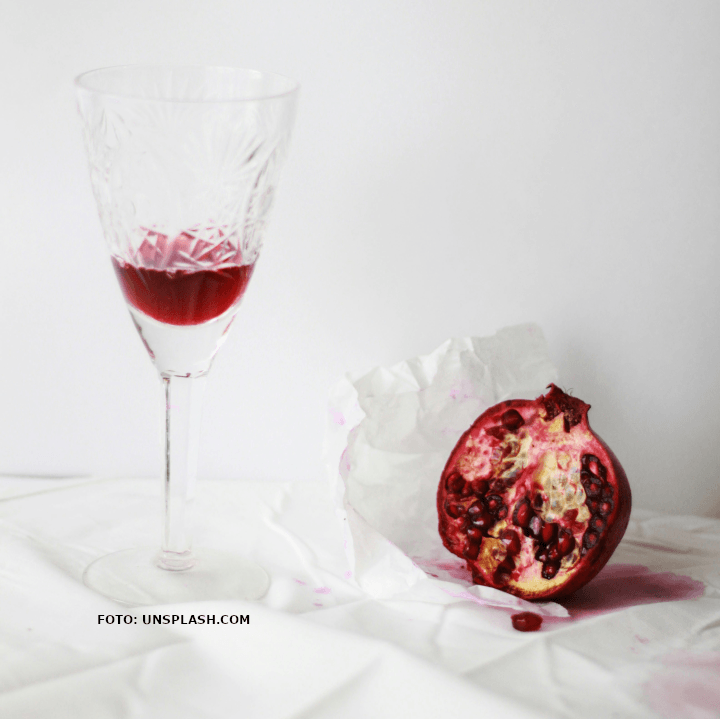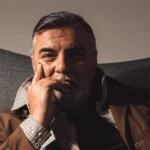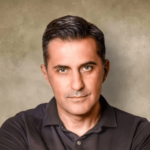WORDS: ANA PAULA ARENDT, LITERARY PSEUDONYM OF R. P. ALENCAR, IS A BRAZILIAN POET AND DIPLOMAT.
** THANKS TO MARKO KRSTIC, DIRECTOR OF THE ETHNOGRAPHIC MUSEUM, TO WHOM THIS LINE BELONGS.
I went away in search of flowers: of the wild plum branch framing the wise Sava. For seeing things from the other side of the river: the urban elevation, riverside huts, the white walls with terracotta roofs. I went in search of a piece of your river to decorate our table, the beginning of each day, the nurturing time when the kos sings.
I plunged into solitude to say good morning to you, just me, without a mix of other people’s memories. No one else around you woke up at the same time as the sun. And now there are daffodils, tulips and cherry blossoms in the white city, Belgrade, nature also waking up earlier, like the mountain the sun awakes before the valleys. On your face, the panorama of many houses, vast green areas, the river running between two mountains, vineyards heading towards the Caucasus. The clouds between the curtains of mountain ranges. Laces of trees dividing the fields. The lakes of navy and cerulean blue, the auras of bluish bronze embedding time, the domes outlined in gold. White earth towers. The Christmas white cedar hanging over the snow, melting from its sleep, now all is waking up…
The medieval town raising a blue dome against the curves of the forests and deserts, the song of prolonged prayers, the orthodox constancy of the fixed gaze. The rhythms of muffled voices united singing melodies of the Balkans in the bar caves… I went away in search of these things that nature endures, when then I entered the ever played park, the disputed spot, the geostrategic zone where people are coming and going, playing chess, reading books, making declarations of love, running the dogs, playing ball, finding a path to walk to the next café, to the next glass, a place to gather children in continuous motion, the circle flashing the entertainment lights.
The damp grass before all this movement covers the white stones and funeral tombstones, where there are bevelled and worn roses minted by the Romans… There someone falls asleep; there someone does not forget the movement while remaining in eternal rest. Urban flowers. It’s already spring and the women are also colourful, white, yellow, light blue and hot pink dresses are blooming. And more levels of walls and eyeless turrets, just the dark hole where the sentries hide, more layers, layers of light stone between honey and earth tones, layers that tell the age of time. And the more I cross this field lined with walls, the more I find a moment I craved before. Where would the starting stone be? The cornerstone from which an idea came to the world… The first gesture that planned the kiss between the earth and stone. I can’t find the first gesture, immersed in this labyrinth of many exits, any stone wants me to declare it is the first of all. Here is a narrow-suspended path from which you can see the tunnels, frameworks, dungeons on top of which defensive walls were built. A fortress that is a boy’s dream. Happy people hanging their arms over the massive walls. Walls made of people relaxing. Exact yew trees, shaped by invisible gardeners, the statues of strong men – where are the women? We are improbable…
In Belgrade, women correspond to sensuality, and it is not appropriate to mix affections that depend on what is suggestive with the more serious matters of imposing virtues. Beauty has to be optional to be beautiful, the softness of forms just asks for a subtle invitation. But I will sit and contemplate from these lines the meeting between the Sava and the Danube, between the feminine and the masculine in Serbian, the female Sava and the male Dunav, the old island of war adorning all romances, the story of my no romance, to reach the perfect view for two, being alone.

And a part of me: in another place, near or far, where I don’t know yet. Sava, in Serbian, tells me that she is the woman who goes to meet the man, Dunav. Sava knows where to end, because the Dunav’s bed is a welcoming angle. I climbed the walls of Kalamegdan, looked at the wall built over the precipice of bare earth, and I saw time passing faster on the clock. From Kalamegdan to Sava, there is the same steep dirt road where I raced down to my grandfather’s house. My grandfather left me there. Where there are so many grain growers having fun, and where many eras have passed. There are more than a thousand places to find in this fortress, the dark space behind the side railings of the pavements where the merciless Ottoman soldiers rode, the blood still fresh and the blood flowing, where many armies defended their conquests by saving kingdoms and countries, the fortress from where we can control the flow of two rivers. Animals kept captive to be exposed. Where the prisoners died, trampled by hunger and thirst, where humus grows and more sensitive herbs sprout; the dark place where suffering has already given way to death. But the snow has melted, the flowers have passed, and the plum has already hung from the branches of many childhoods. The swans are gathered around the arms enchanted by their beauty, the arms that feed out love for the wild swans.
And now I arrive at my favourite place, the end of the line. Among a thousand places, let me discover a spot where both rivers meet, a land where the boats stop, where fishermen gather, specifically where the pass ends. See the life of the river, sitting on this cement point that makes the land cease, between the Sava and the Danube, where the fishermen remain for a long time watching the transition from the pale, celestial blue to the dense green, the thick seaweed, where the fishermen stay as guardians of silence, fish hearers. The fisherman tells me about the very strong waters and currents in the centre of the river, about the better place, the shallow fishing water, a place where the wild ducks dive to exercise patience. Bait selection.
About those fish giving the world many offspring: they don’t know how to have their children for them. They don’t want selfishness. And they give more and more of themselves to the ducks, to the fishermen, to the rivers… The fish don’t discern between bait and food, and they eat each other, but that doesn’t mean they prey. It’s up to the fish to fit one inside the other, all made of the same river material. I’m also fishing for words, a verse that won’t escape me. Fishermen and poets depend on the silence, on the distance between birds and men, on flying the shortest distance between the wind and its flock, between the bird and its nest, between the seagull and its food. This is the work of the fisherman beneath the edges of the birds, imitating a small fish, waving his rod as a small fish waves in the water. You love the stones of Belgrade producing water… So let me have your water.
My favourite place is at the foot of Kalamegdan: fishing verses in the river. In my childhood it was the Madeira river, wearing the colour of a golden sunset, then the Prata, dressed in platinum flow. Now it is green and blue, depending on the mood of the Danube and the Sava. Rivers carry transparent salt from land to sea. Long processes of depuration of our stuff. One day, our entire dusty life, made of yarn, pages and events will have been purified, and which sea will we have? The sea is always the sea, the sea is always like this, deeper than our thought outreach, the vastness of it, but the river, this winding route in many stops that we will make, with fresh water, is covered with fluvial life, birds, fish, swans, boats, wild ducks, edges made of little white houses…
The rivers stretch out, join together and embrace the water that the mountain makes to run down to the land. The rivers flow incessantly, guarding the differences of each place, raising the forests, distributing resources, offering uses, guarding the boats. It makes sense to build an insurmountable fortress to make the houses safe, covered with new walls every time, a walk to see the rivers, a home for trees and flowers. The place where you conquer yourself, where you see life, laughter, music, the world. My new Serbian friend, a vast-horizon-sailor, says that the river is not the same thing as the sea: he says that the sea is infinite in our eyes, bigger than rivers, because from one bank you can immediately see the other bank of the river**. But in the Amazon, where I came from, you can’t see the other side of the river, and the depuration of things is an end that you can’t see either. And you see: here one bank exists only with the other bank, they talk to each other, and from this mirror movement that makes the water flow, there is no end either.
Ah, to see the other side of the river Sava and the Danube, from the massive fortress, from the eagle’s gaze on the arm of a man… To be one of their banks. Nothing grander, and only here, in the Belgrade fortress, the wild plum tree stands blossomed and delicate to outline the park. At this point there is no regret at seeing all the things that hit us, only sweet water, which the sailor wants to turn into tears… But I went in search of flowers in Belgrade, and the flowers told me about their parents, the two rivers. My favourite place is not inside the Kalamegdan. Being a wild plum tree… Making the landscape that the fortress guards, the riverside with your feet bathed in the water, talking to the swans, fishermen and fish, listening to a saltwater sailor, thirsty for saltwater in tears, for infinity: living on the margins of the overlapping, incessant achievements, sitting on that concrete point where the path ends. That is my sweet place of comfort.



